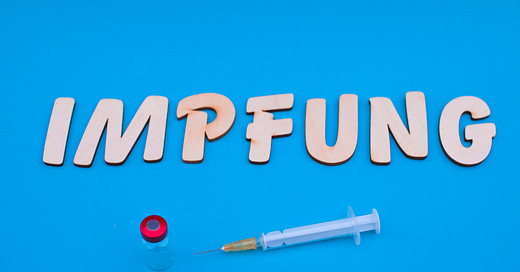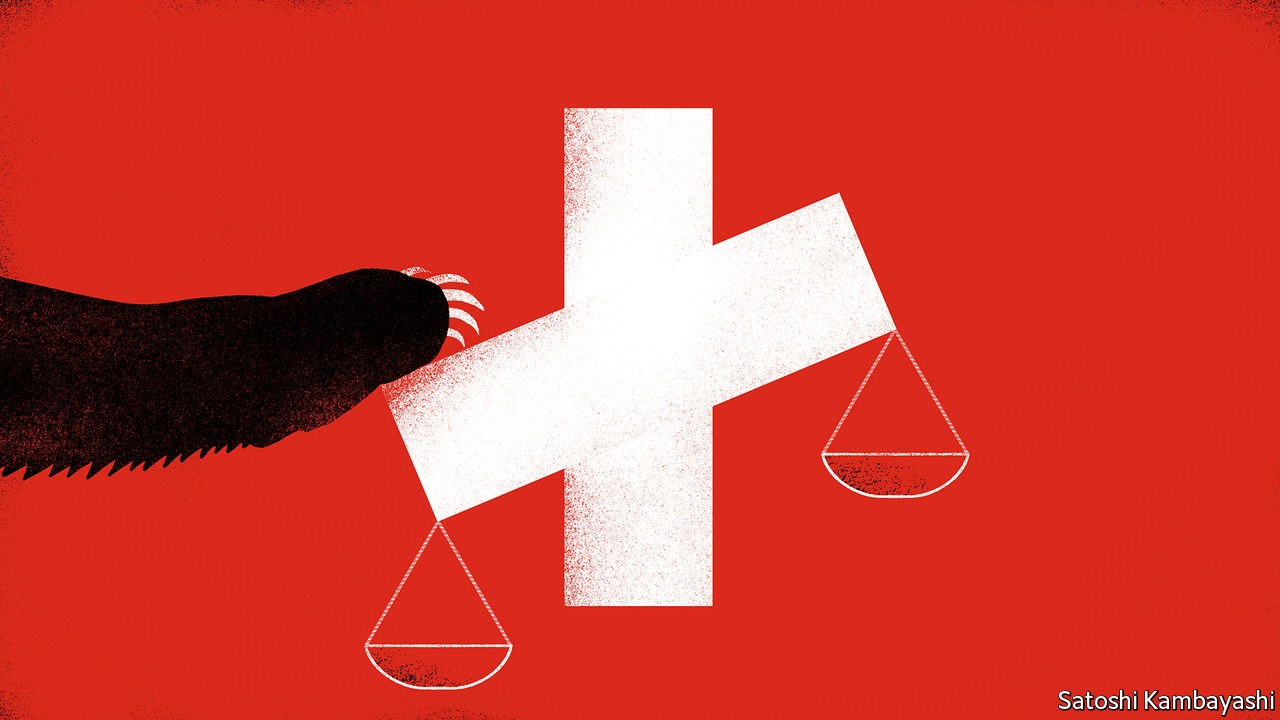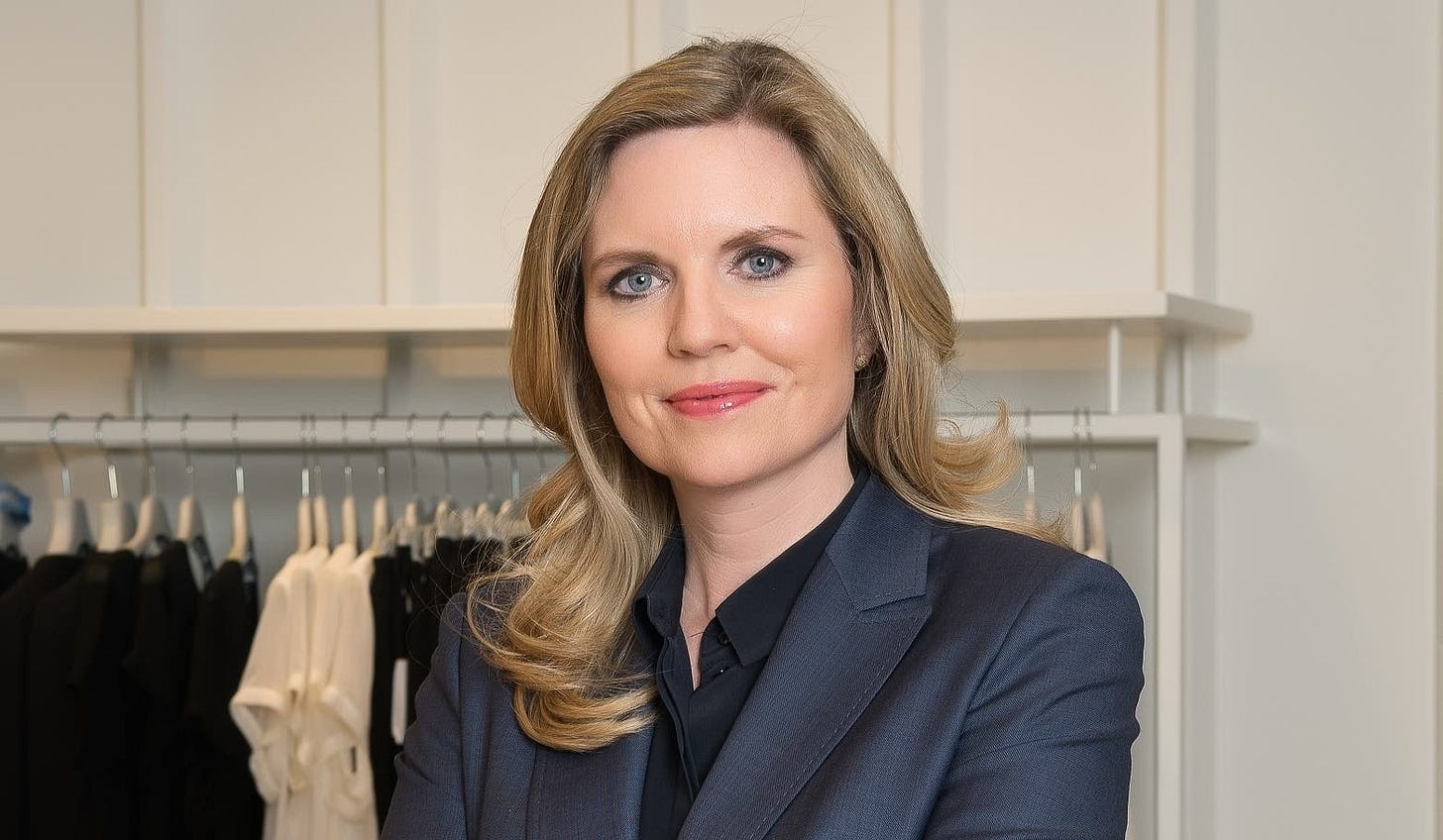Dear Insider,
Vaccinations are a lot like firecrackers. 🎆
They come in small packages, take considerable time to prepare, and, most importantly, are highly anticipated.
Even after the welcome news that several vaccines had been developed and approved, most of us are still waiting for the big bang. In this case, of course, the ‘bang’ being the long-desired safety and security offered by having a population that no longer needed to social distance to be safe from the virus.
But firecrackers can have a slow burn - and far too often, you can end up with a dud. Especially if you don’t light the fire just right.
On the whole, neither the Swiss nor citizens of other countries around the world question the great efforts which have been put into producing the covid-19 vaccines now being brought to market. But the big bang hasn’t happened yet…
The reasons are various and sundry.
Poor coordination, poor communication, a skeptical population - or general suspicion of those in charge of the rollout. The last problem has not been helped by charges of preferential treatment for big wigs from outside the country (see The Briefing) or vaccine doses which end up getting thrown out because of mistreatment during delivery.
So the burn continues…and the danger grows that the ‘big bang’ might be of an entirely different kind: deepened economic chaos or even social unrest.
Speaking of ‘slow burns’ - there is another kind of firework that threatens to blow up soon. Multiple scandals, large and small, involving Swiss bankers of various stripes, from UBS (Ralf Hamers) to Julius Bär (Boris Collardi) to Credit Suisse (numerous), keep piling up.
Their existence is not necessarily new. But as a recent article from The Economist shows, there are many worrying ties between Swiss bankers, Swiss prosecutors, and foreign forces of the eastern European nature.
So far, no great fireworks have erupted, no great Swiss banking meltdown has begun. But who knows how long that state will continue….?
In the case of covid vaccinations, delayed fireworks are not a good thing. The slow-moving nature of politics and decision-making, together with a balanced approach designed ‘not upset the apple cart’ on any point are hallmarks of Swiss society.
In these cases, however, there is danger in playing with fire. 🔥
The Briefing
Burning news from around Switzerland - bit by bit…
Rich and vaccinated
Depending on who you ask, the rollout of corona vaccines continues to sow chaos around the country. Some want one, but can’t get one - others don’t want one, but are being pushed to do so. One man who definitely did desire an inoculation was Richemont Chairman Johann Rupert. The billionaire (and South Africa’s richest man) signed up to receive his dose - fully in line with Swiss government regulations since Rupert has several pre-existing conditions. But the good example he and other top executives tried to set backfired after word of the move got out.
What it means: The relationship between rich and poor(er) in Switzerland remains a delicate topic - and corona hasn’t made it easier. Privilege is easier to tolerate when not flaunted as is usually the case among discrete Swiss. In this case, ‘setting an example’ proved a poor strategy, especially as it was interpreted as a ploy to force rank-and-file employees to fit in. Coercion seldom works out well.
Making Over the (Swiss) Gray Lady
And yet another change in the ranks of one of Switzerland’s top media houses, often compared to the venerable New York Times aka The Gray Lady. René Scheu, who led the Opinion section of the newspaper, was recently announced as the new top man at the University of Lucerne’s Institute of Swiss Economic Policy, beginning 1 July 2021. His departure follows that of Rainer Stadler, who departed earlier last year after 31 years. Stadler’s replacement at the time? René Scheu.
What it means: Despite a healthy level of growth in its number of paying subscribers (over 160 000), NZZ and other top media houses face tough competition. Pressure on the bottom line has forced newspapers with a traditionally large staff to cut costs and take a hard look at reporters who, despite their quality work, do not have enough of a social media following to add extra value to the outlet’s brand. And that means people become numbers…as usual.
Loosely speaking
Boris Collardi could have done worse. Despite landing squarely in the sights of FINMA for transgressions during his tenure at Julius Bär, the Swiss banker seems to have gotten off relatively lightly. His punishment is limited to public reprimands and a tersely worded statement from Pictet, his current employer. If observers expected the erstwhile “loose cannon” from Zürich to continue in the same manner after his move to Geneva - this action makes it clear that will not be the case.
What it means: Pictet avoids an all-out scandal, but only by circling the wagons and making sure that Collardi stays on-side. Meanwhile, the Swiss reputation for shady business dealings does not completely disappear. People continue to talk about Swiss banking with a knowing look - and a wink and nod. Recent reporting from The Economist does not help… (See above).
Broadening the Board
Digitalization makes some people shudder - and makes other a ton of money. The latter group includes digital transformation specialist ti&m - whose homepage declares simply: “We develop digital solutions.” To help them in this endeavor, the firm has brought in Johannes Höhnner as its latest member of the Board of Directors. The Swisscom fintech veteran boasts long years of experience in digital business - and most recently - developing digital asset services.
What it means: Cross-pollination of large enterprises, C-suite personalities, and especially among senior members of state-backed companies is not uncommon in Switzerland. What country lacks in competitive drive à la Silicon Valley, it makes up for in chummy partnerships - although the end results aren’t always as innovative as they would seem - just ask Coop and Swisscom about Siroop.
Feeling smarter (already)?
Let others know about The Swiss Insider…they’ll thank you. 😀
By the Numbers
Numbers that matter…
1.9 million / 685 000
With nearly 2 million persons in taken onto short-term unemployment benefits last spring, Switzerland’s workforce managed to somehow muddle through the country’s first lockdown. After a dramatic drop in applicants over the summer, the government scheme has seen a return to favor in November and December, with over 650 000 employees on its rolls. With a cap of CHF 750 000, larger companies hardest hit by the partial lockdown will still suffer…
8.3 million
Some numbers look impressive - without proper comparison. Over the past year, 8.3 million passengers passed through Zürich’s world-class airport. That was more than a 2/3rds less than the year before when travelers numbering 31.5 million came and went. Not only was it a sign of weak tourist travel and business class passengers - the sharp dropoff deprived major banks and watch companies - some of Flughafen Zürich’s main advertisers - of their preferred branding opportunities. The time to fly has still not come…
4.9%
A is for AXA - and for “attractive” returns on 2nd pillar investments. The insurance giant has long been known for its innovation and market-leading position. Now the numbers prove it (again): against a backdrop of only minimal performance from the industry as a whole, AXA’s retirement funds have returned 4.9% in 2020, and a ‘whopping’ 7% in 2019. Others have a while to catch up….
The Profile -
An in-depth look at singular personalities from Switzerland. This week the focus is on Manuela Beer, the CEO of up-scale retailer PKZ.
Even as a second lockdown puts the hit on retailers in Switzerland, Manuela Beer continues to believe in the power of her brand - and that brand is PKZ. The up-scale clothing store chain founded in 1881 by Paul Kehl would seem to be a prime victim of shopping restrictions, but the company’s boss doesn’t see it that way.
In fact, as recently as November 2020, she told Swiss business outlet Handelszeitung the chain was looking to open even more brick-and-mortar locations.
What inspires Manuela Beer to such optimism? What makes her tick?
The first female CEO of PKZ finds hope first and foremost in men - or in menswear to be more precise. In a country that (still) has no lack of bankers, not to mention foreign nationals looking to stay stylish, the male segment holds strong promise for growth.
It’s a shrewd move too.
Even as a woman at the top, targeting the upper-middle-class segment of men who still remain that top breadwinners in Swiss families serve as a tacit admission that winning their business would be good for her business.
Opening new stores, even as covid remains a force, also betrays boldness. Some figures indicate that savings rates among consumers have skyrocketed during the pandemic. So while construction and renovation costs are cheap - due to the general slowdown - and commercial property rents fall, preparing for the big splash out afterwards looks like a smart move.
But long-term thinking and bold vision shouldn’t come as a surprise from Manuela Beer. Her previous experience, first at Unilever and then at Globus, another top clothing retailer, prepared her well for the current challenges - and opportunities.
Upon taking over the top spot, after long-time CEO Oliver Burger passed away suddenly in 2015, Beer made it her aim to add more emotion to the PZK shopping experience. She also took steps to bring the firm’s online and offline offering together more seamlessly.
That also proved a wise choice. Even though PKZ had offered online shopping since 2011, it’s true worth is only today being discovered to the full extent.
With spring - and a possible boom year for business - around the corner, PKZ and its over 550 employees can be glad that they have a boss that looks to the future.









